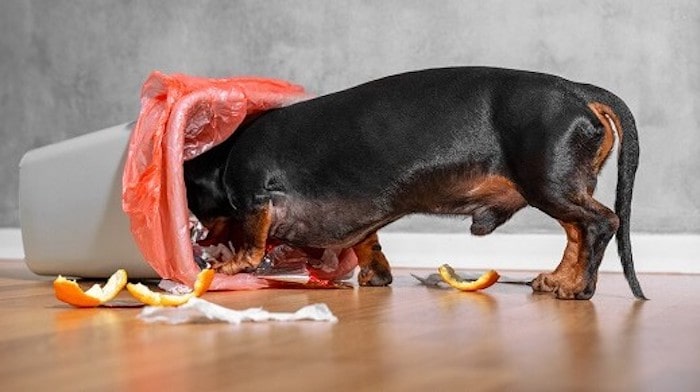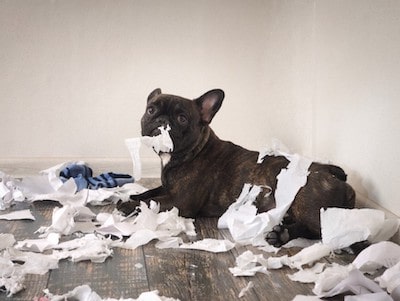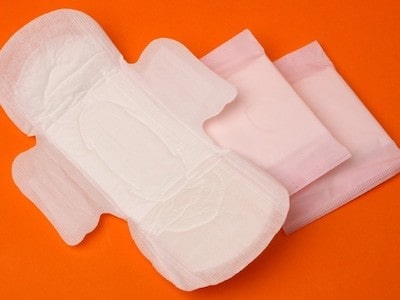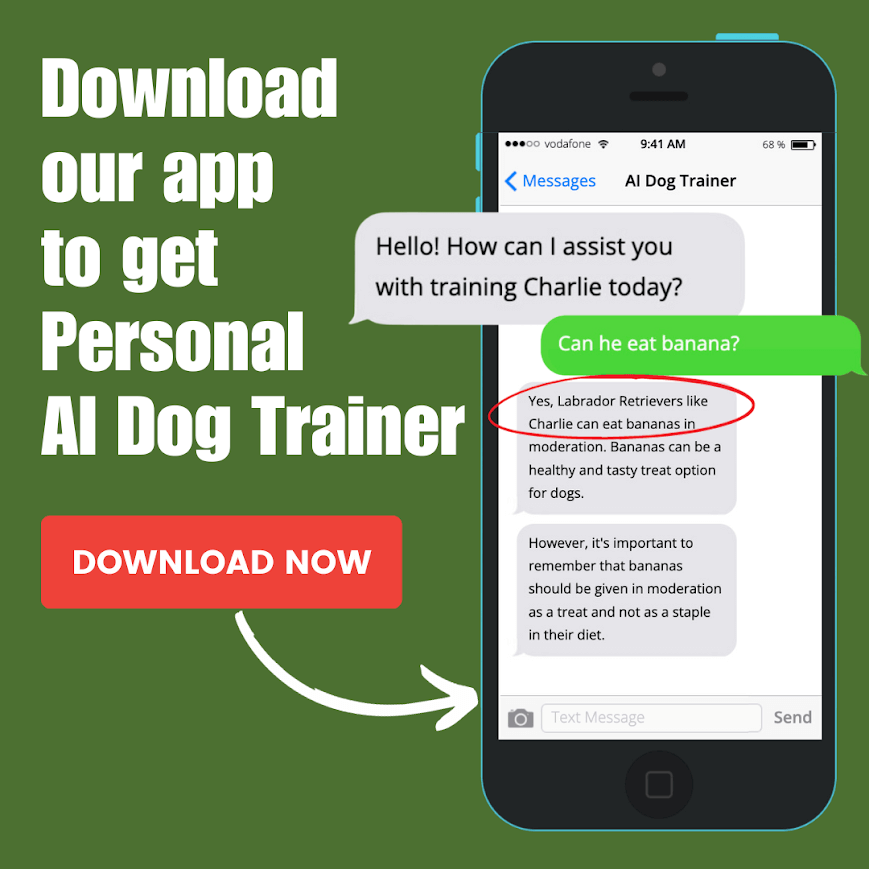Have you ever walked into your living room, only to find your dog happily chewing on your pads? It’s a perplexing and frustrating sight for many pet owners. You might wonder, “Why does my dog eat my pads?” Is it a sign of an underlying health issue or simply a quirky behavior?
In this article, we delve into the curious world of our canine companions and explore the possible reasons behind this unusual habit. Whether your furry friend is a curious puppy or a seasoned adult, understanding why they engage in pad munching can help you address the behavior effectively.
So, let’s unravel the mystery and discover the answers to the question that has left pet owners scratching their heads: “Why does my dog eat my pads?”
Why do Dogs Eat Sanitary Pads
Dogs are curious and scavenging animals by nature. They explore the world through their noses and mouths, and they are attracted to anything that smells interesting or edible to them. Sanitary pads and tampons are especially appealing to dogs because they contain blood, which is a natural source of protein and iron for them.
Dogs may also eat sanitary pads because they are bored, stressed, hungry, or have a medical condition that causes them to crave non-food items (a condition called pica).

However, eating sanitary pads is not only gross, but also dangerous for dogs. Sanitary pads are not meant to be eaten and can cause gastrointestinal upset in your dog. Symptoms of gastrointestinal upset include vomiting, diarrhea, and abdominal pain. If your dog is showing any of these symptoms, please contact your veterinarian.
Sanitary pads can also cause obstruction in the intestines. If your dog is unable to pass the pad, surgery may be required to remove it. Obstruction can lead to serious complications such as dehydration, infection, perforation, or even death.
Lastly, sanitary pads can be a choking hazard. If your dog has swallowed a sanitary pad, please contact your veterinarian or the nearest emergency animal hospital immediately. Choking can cause difficulty breathing, gagging, drooling, or collapse.
Common Causes of Dogs Eating Sanitary Pads
There are many possible reasons why dogs eat sanitary pads, but some of the most common ones are:
- Hunger: Dogs may eat sanitary pads because they are hungry and looking for food. This may happen if they are not fed enough, have a high metabolism, or have worms or parasites that make them feel hungry all the time.
- Boredom: Dogs may eat sanitary pads because they are bored and have nothing else to do. This may happen if they are left alone for long periods of time, have no toys or stimulation, or have excess energy that they need to burn off.

- Anxiety: Dogs may eat sanitary pads because they are anxious or stressed. This may happen if they have separation anxiety, fear of loud noises, phobias, or other emotional issues that make them feel insecure or nervous.
- OCD: Dogs may eat sanitary pads because they have obsessive-compulsive disorder (OCD) or canine compulsive disorder (CCD). This is a mental condition that causes dogs to perform repetitive behaviors that are hard to stop, such as licking, chewing, spinning, or eating non-food items.
- Pica: Dogs may eat sanitary pads because they have pica, which is a disorder that makes them crave and eat non-food items. This may be caused by nutritional deficiencies, medical problems, or behavioral issues.
Potential Dangers of Dogs Eating Sanitary Pads
Eating sanitary pads can be very dangerous for dogs, as they can cause serious health problems such as:
- Choking: Tampons and sanitary pads can get stuck in the dog’s throat and block the airway, causing choking, gagging, coughing, or difficulty breathing. This can be fatal if not treated immediately.
- Obstruction: Tampons and sanitary pads can get stuck in the dog’s stomach or intestines and cause an obstruction, which prevents food and water from passing through. This can cause vomiting, diarrhea, abdominal pain, loss of appetite, dehydration, or shock. This can also be fatal if not treated immediately.

- Infection: Tampons and sanitary pads can introduce bacteria or fungi into the dog’s digestive system and cause an infection, which can lead to fever, lethargy, weakness, or sepsis. This can also be fatal if not treated immediately.
- Toxicity: Tampons and sanitary pads can contain chemicals or substances that are toxic to dogs, such as bleach, perfume, dyes, or plastic. These can cause poisoning symptoms such as drooling, tremors, seizures, coma, or death.
What to do if your dog ate a sanitary pad?
If you suspect that your dog ate a sanitary pad, you should act quickly and follow these steps:
- Check your dog’s mouth and throat for any signs of choking or obstruction. If you see any, try to remove the item carefully with your fingers or a pair of tweezers. If you cannot remove it or your dog is showing signs of distress, take him or her to the nearest emergency vet clinic immediately.
- If your dog is not choking or obstructed, monitor him or her for any signs of gastrointestinal upset, such as vomiting, diarrhea, abdominal pain, or loss of appetite. If you see any, take him or her to your regular vet as soon as possible.
- If your dog is not showing any symptoms, call your vet and ask for advice. Your vet may recommend that you induce vomiting, give your dog a laxative, or feed him or her a high-fiber diet to help pass the item. Your vet may also ask you to bring your dog in for an examination or an x-ray to check for any complications.
- Keep an eye on your dog’s stool for the next few days and look for any traces of the tampon or sanitary pad. If you do not see any within 48 hours, contact your vet again.
FAQs
Is it normal for dogs to eat pads?
While it is not considered a typical behavior, it’s not entirely uncommon for dogs to chew on pads or other non-food items. If your dog occasionally chews on pads without any adverse effects, it may not be a cause for concern. However, consistent pad eating could lead to health issues and should be addressed.
Should I be concerned if my puppy eats pads?
Puppies explore the world with their mouths, which includes chewing on various objects. While it’s not uncommon for puppies to chew on pads during their teething phase, you should still take measures to discourage the behavior and monitor them closely to prevent potential health risks.
Are there alternative solutions to pads for house-training my dog?
Yes, there are several alternatives to traditional pads for house-training your dog. You can use artificial grass patches specifically designed for dogs, reusable washable pads, or train them to eliminate outside in a designated area.
Can training help stop my dog from eating pads?
Yes, training plays a significant role in curbing unwanted behaviors like pad chewing. Positive reinforcement training can help redirect your dog’s focus towards appropriate chew toys and reward them for leaving pads alone. Consistency and patience are key to successful training outcomes.
Conclusion
In conclusion, dogs eat sanitary pads for various reasons such as curiosity, scavenging, stress, or medical condition. Eating sanitary pads can be dangerous for dogs and cause gastrointestinal upset, obstruction, choking, or even death.
To prevent your dog from eating sanitary pads, you should dispose of them properly, secure your trash cans, dog-proof your home, provide alternatives, and give your dog enough exercise and attention.
If your dog ate a sanitary pad, you should monitor them for any signs of trouble and contact your veterinarian if needed. You may also try to induce vomiting at home if instructed by your veterinarian.

Robert is the heart of Dog Needs Best, with his cheerful personality he is not only beloved by our team but also by dogs. He owns multiple dogs and knows ins and outs of them. Finding the perfect product is what he is best at!

